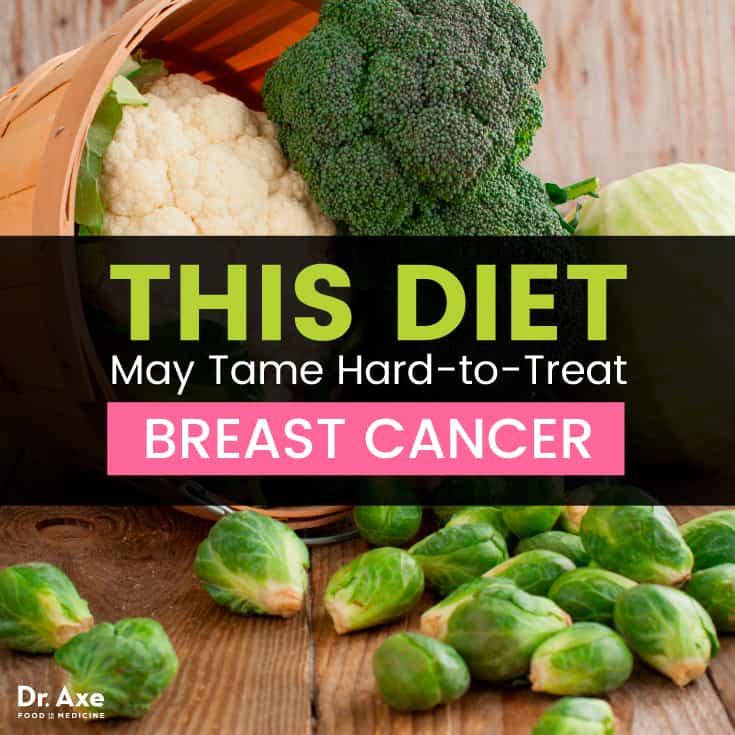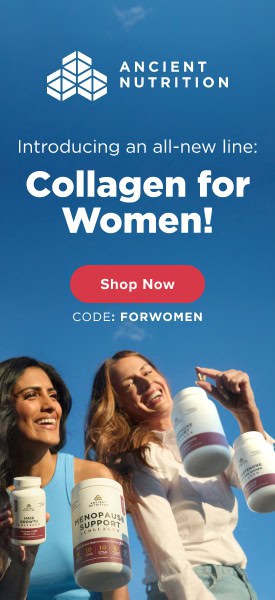This Dr. Axe content is medically reviewed or fact checked to ensure factually accurate information.
With strict editorial sourcing guidelines, we only link to academic research institutions, reputable media sites and, when research is available, medically peer-reviewed studies. Note that the numbers in parentheses (1, 2, etc.) are clickable links to these studies.
The information in our articles is NOT intended to replace a one-on-one relationship with a qualified health care professional and is not intended as medical advice.
This article is based on scientific evidence, written by experts and fact checked by our trained editorial staff. Note that the numbers in parentheses (1, 2, etc.) are clickable links to medically peer-reviewed studies.
Our team includes licensed nutritionists and dietitians, certified health education specialists, as well as certified strength and conditioning specialists, personal trainers and corrective exercise specialists. Our team aims to be not only thorough with its research, but also objective and unbiased.
The information in our articles is NOT intended to replace a one-on-one relationship with a qualified health care professional and is not intended as medical advice.
Plant-Based Diet and Breast Cancer: Diet May Convert Aggressive Cancer to More Treatable Form
October 30, 2017

Are a plant-based diet and breast cancer treatment options related? That could be the case, according to a 2017 animal study. But first, let’s take a step back: About on in eight women in the United States will develop invasive breast cancer over the course of her lifetime. That’s 12 percent of women in the U.S. (1) And here’s an important thing to note: Not all breast cancer is the same.
Breast cancer can either be classified as estrogen receptor-positive (ER-positive) or estrogen receptor-negative (ER-negative). Estrogen receptor-negative tumors are significantly less likely to respond to hormone therapy than ER-positive tumors. Simply put, ER-negative breast cancers are typically more aggressive, and there aren’t as many treatment options for women who develop ER-negative breast cancer. That’s why the findings of a 2017 study are all the more encouraging.
Plant-Based Diet & Breast Cancer: Study Details
Because of this poorer prognosis, new advances in the prevention and treatment of ER-negative breast cancer are highly significant. In the latest potential breakthrough, researchers at the University of Alabama at Birmingham identified certain foods that may be able to transform ER-negative breast cancers into a more treatable disease.
In a 2017 animal study, researchers used epigenetics to identified two compounds in common foods that could be used together to “turn on” the ER gene in ER-negative breast cancer so the cancer could then be more easily treated. The two compounds are sulforaphane from cruciferous vegetables, such as broccoli sprouts, and polyphenols from green tea. With this dietary treatment, researchers found the tumors in the mice changed from ER-negative to ER-positive cancers. This then made the breast cancer more easily treated.
Since this research only looked at mice, the next step is to move into a clinical trial. The hope is to eventually provide more effective treatment options for women either predisposed to or living with this disease.
Plant-Based Diet and Breast Cancer: Best Foods
While more research is still needed on the effects of sulforaphane and polyphenols on humans with ER-negative breast cancer, switching to a plant-based diet will help you receive more of these compounds into your diet. In addition to providing this potential cancer-weakening effect, a plant-based diet offers a number of other health benefits, including supporting pH levels, helping lower inflammation and potentially assisting in weight loss. (2, 3) Some of the best plant-based foods include:
- Broccoli Sprouts and Other Cruciferous Vegetables. Broccoli sprouts, which were mentioned in the study, contain sulforphane. Other cruciferous vegetables like kale, Brussels sprouts, collard greens, broccoli, cabbage, mustard greens, cauliflower, turnip, bok choy, watercress, kohlrabi, broccoli rabe and radish also contain this compound.
- Green Tea. Green tea contains polyphenols, but it’s not the only source. Blackberries, strawberries, cocoa powder, dark chocolate and clove all also contain beneficial polyphenols.
- Healthy Fats. This includes oils like virgin olive, coconut, hemp, sesame, flax and avocado oils. Nuts, seeds, coconut milk and avocado are also excellent sources of “good” fats from plant-based foods.
- Fruit. Fruit is full of fiber, antioxidants, vitamins and water. I personally recommend berries, kiwi, melon and tropical fruits.
- Whole Grains. Whole grains include quinoa, oatmeal, brown rice, wild rice, millet, barley, amaranth, buckwheat, farro and more. In moderation, whole grains can be an excellent source of fiber, but be sure to skip the refined carbohydrates.
Plant-Based Foods to Avoid
It’s important to note that not all plant-based foods are created equally. If you’re switching to a more vegetable-packed diet, skip:
- Soy. Soy contains phytoestrogens, and these phytoestrogens mimic estrogen in the body. If you’re a woman consuming foods that increase estrogen in the body, you may increase your risk of breast cancer, cervical cancer, PCOS (polycystic ovary syndrome) and other hormone imbalance-related disorders. If that’s not bad enough, 90 percent of soy today is also genetically modified.
- Vegetable Oil. Processed oils — like vegetable and canola oils — are extracted by the use of solvents. The fats in these oils are exposed to light and air, which oxidizes the fat and turns them rancid. The oil is then boiled to remove most of the solvent. The high heat and pressure destroy antioxidants and alter the chemical nature of the fat, creating dangerous free radicals. BHA, BHT and dangerous preservatives are then often added to extend the shelf life of these oils.
- Fruit Juice. While fruit can be beneficial in a plant-based diet (In fact, I even recommend eating them), fruit juice generally contains more sugar that is hitting the bloodstream quicker. Why is this? Think about how long eating a cup of strawberries takes, then think about how long drinking the equivalent requires. You need much more fruit in a smoothie that goes down much quicker than chewing the solid form. Plus, some juices aren’t made from 100 percent pure fruit juice.
Related: What’s the Best Way to Eat for Breast Health?
Final Thoughts on Plant-Based Diet and Breast Cancer
- Breast cancer can either be classified as estrogen receptor-positive (ER-positive) or estrogen receptor-negative (ER-negative).
- Estrogen receptor-negative tumors are significantly less likely to respond to hormone therapy than ER-positive tumors.
- Researchers found two compounds that could be used together to “turn on” the ER gene in ER-negative breast cancer so the cancer could then be treated with estrogen receptor inhibitors.
- The two compounds are sulforaphane from cruciferous vegetables such as broccoli sprouts and polyphenols from green tea.
- A healthy plant-based diet includes cruciferous vegetables, green tea and other polyphenol-containing foods, healthy fats, fruit and whole grains and skips the soy, vegetable oils and fruit juices.



